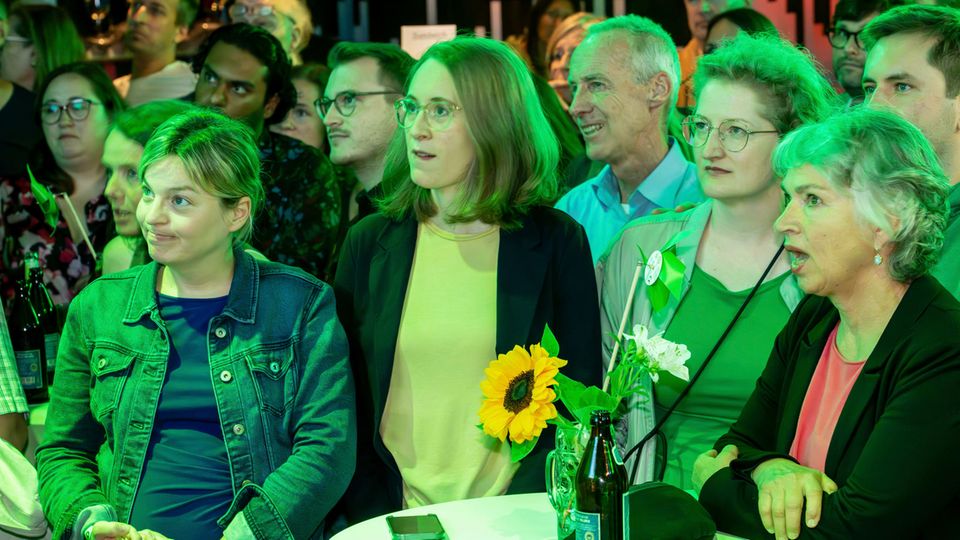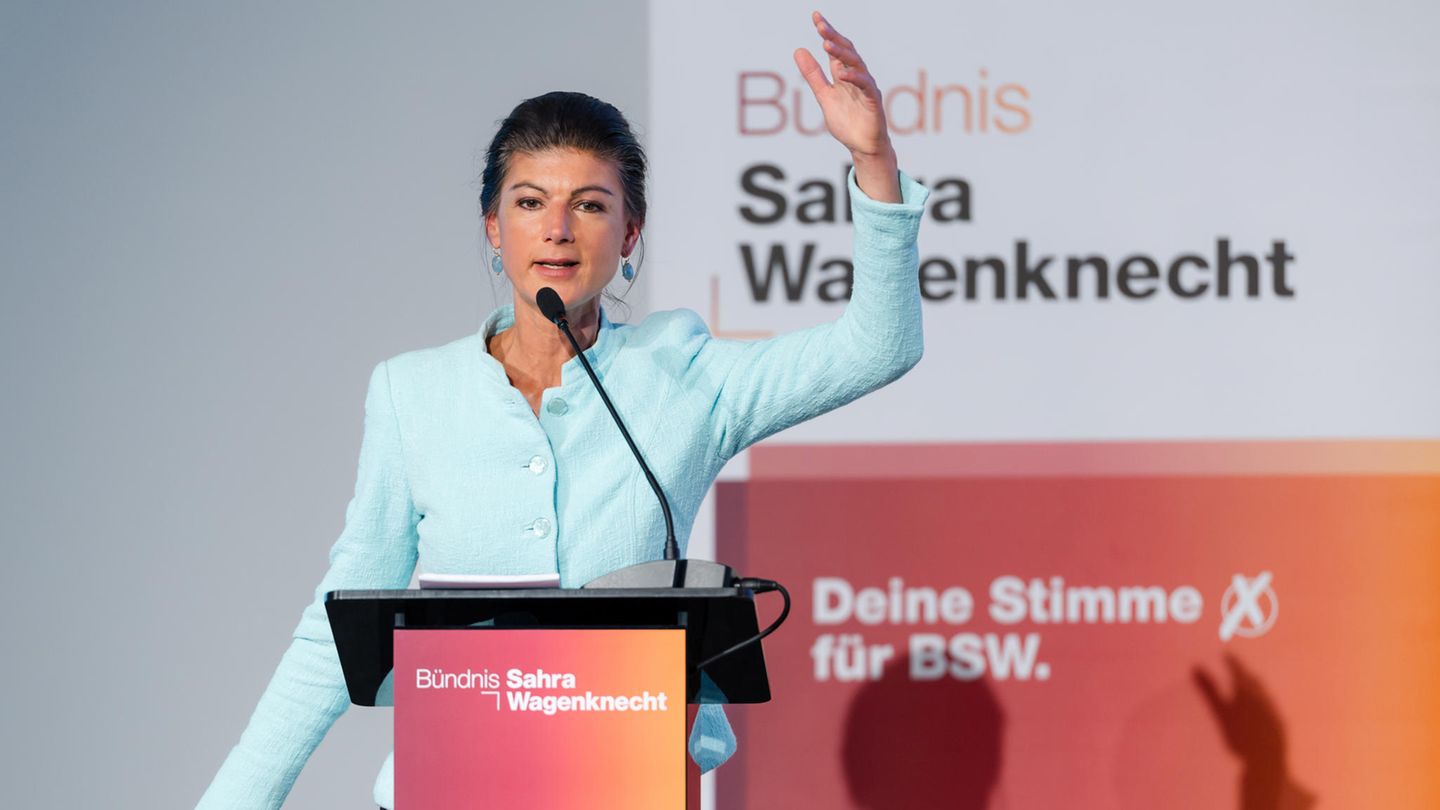Before the meeting of the eastern minister presidents with the chancellor, poll results from Thuringia are causing a stir. Can there be a government there without the BSW? Unlikely.
Around two and a half months before the state elections in Thuringia, it is becoming difficult to form a government. In a survey published on Tuesday by the opinion research institute Infratest dimap on behalf of MDR, the AfD is clearly in first place with 28 percent and together with the BSW (21 percent) would receive almost half of the votes. The CDU (23), SPD (7) and Left (11) together only have 41 percent, and the Greens and FDP would no longer be represented in the state parliament at all.
Decisive role for BSW in Thuringia possible
Since all other parties have so far ruled out an alliance with the AfD, such a result would mean that, as things stand, only a government could be formed with the participation of the Sahra Wagenknecht (BSW) coalition. The CDU has not ruled out such an alliance. The SPD parliamentary group manager in the Bundestag, Katja Mast, did not want to comment on the matter during a visit to Cottbus on Tuesday. “This question does not arise at the moment,” she said. The polls are snapshots. A red-red-green coalition led by the Left Party is currently governing Thuringia.
The new poll results were announced shortly before the conference of the eastern minister presidents, who are meeting with Chancellor Olaf Scholz on Tuesday afternoon in Lutherstadt Wittenberg in Saxony-Anhalt. One of the topics to be discussed was the results of the European elections, in which the AfD became the strongest force in all five eastern German states despite all the personnel disputes and allegations of espionage. Similar results are now expected for the state elections in Thuringia and Saxony on September 1 and in Brandenburg on September 22.
Sticking points: migration policy and health care
Saxony-Anhalt’s Prime Minister Reiner Haseloff (CDU) called the results a “disaster”. “This is a lesson that we have received, which calls on us to address the causes here today at the Eastern Prime Ministers’ Conference,” said the CDU politician in the ARD “Morgenmagazin”. There has never been such dissatisfaction with a federal government and with Europe. Haseloff called for a clear change of course, especially in migration policy, but also in industrial policy. “In any case, we cannot continue like this.” Scholz also understood that.
Mecklenburg-Western Pomerania’s head of government Manuela Schwesig (SPD) called on Scholz (SPD) to give greater consideration to East German concerns. “The last elections have shown that people in East Germany are very dissatisfied,” said Schwesig when asked by the German Press Agency. An important issue for people is comprehensive health care. The hospital reform with the flat-rate provision is a step in the right direction, but rural areas must be given greater consideration. “You cannot get the same number of cases in rural areas as in urban conurbations,” said Schwesig. Health care is on the agenda of the meeting in Wittenberg, along with the European elections, the reform of nursing care insurance and economic and energy policy.

“Many changes of direction in the government”: That’s why fewer and fewer young people are voting for the Greens
03:00 min
Wagenknecht blames the Prime Minister for the bad mood
BSW founder Wagenknecht blamed the prime ministers of the eastern states for the discontent of voters there. “The dissatisfaction of the East Germans is not only due to the federal government, but also to the East German prime ministers,” said the chairwoman. “In recent years, they have achieved too little and have hardly stopped any of the nonsensical things that came from Berlin.”
Wagenknecht accused the state premiers of being “sometimes too submissive” to the federal government compared to many West German state leaders. “This was particularly pronounced during the Corona period. But even on the issues of refugee policy, energy and pensions, the eastern state premiers are failing to adequately represent their citizens to the chancellor,” said the BSW boss.
Source: Stern
I have been working in the news industry for over 6 years, first as a reporter and now as an editor. I have covered politics extensively, and my work has appeared in major newspapers and online news outlets around the world. In addition to my writing, I also contribute regularly to 24 Hours World.




